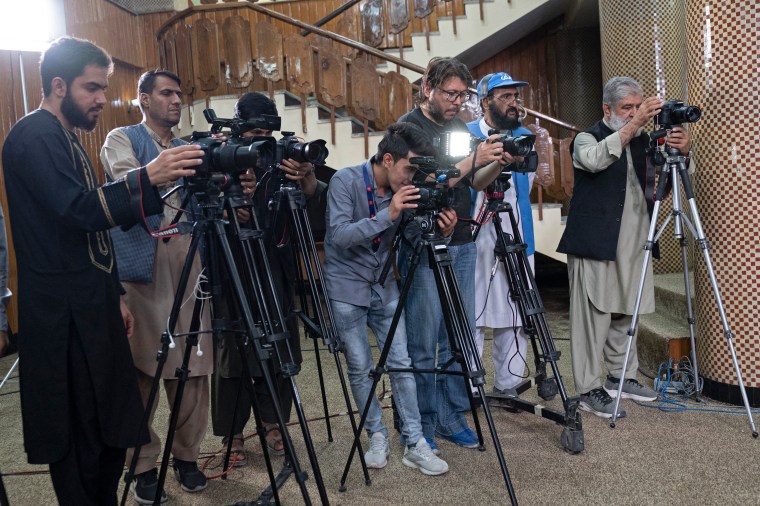New York, September 24, 2024—The Taliban must reverse their directive banning live broadcasts of political shows, criticism of the group, and interviews with analysts not on a list of 68 pre-approved names, the Committee to Protect Journalists said Tuesday.
On September 21, the Taliban’s Ministry of Information and Culture summoned media executives in the capital Kabul and issued an unprecedented list of restrictions on media freedom, two reporters in Kabul told CPJ on condition of anonymity, citing fear of reprisal.
The ministry ordered domestic journalists producing daily political discussion shows to seek its approval each morning of proposed topics and participants. Shows must then be pre-recorded and approved by the Taliban prior to broadcasting. Content contrary to Taliban policies or critical of the group or its officials must be removed, it said.
The ministry later issued a one-page directive, reviewed by CPJ, detailing the new rules. It said that journalists wishing to interview an expert who is not on the Taliban’s list must seek the information ministry’s permission. If any of the rules are violated, the Taliban will hold the media manager, political show desk officer, editor-in-chief, and the guest accountable, and “they will be dealt accordingly,” the directive said.
“The Taliban must immediately reverse their draconian media restrictions and stop dragging Afghanistan back to the Stone Age,” said CPJ Asia Program Coordinator Beh Lih Yi. “These new restrictions signal the end of fundamental media freedoms in Afghanistan and seek to transform the media into a Taliban propaganda tool. This must be stopped, once and for all.”
A third journalist in Afghanistan, also speaking on condition of anonymity, told CPJ that the Taliban had already begun preventing live broadcasts by verbally ordering media executives not to run them in the days prior to the September 21 meeting.
Earlier in September, the Taliban jammed broadcasts in Kabul of the popular London-based Afghanistan International television network.
CPJ’s text messages to Taliban spokesperson Zabihullah Mujahid requesting comment went unanswered.
